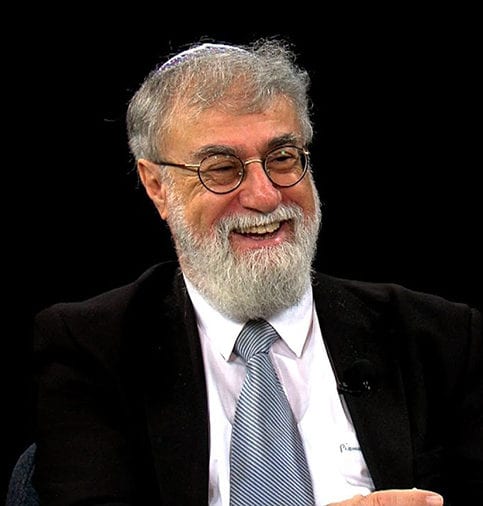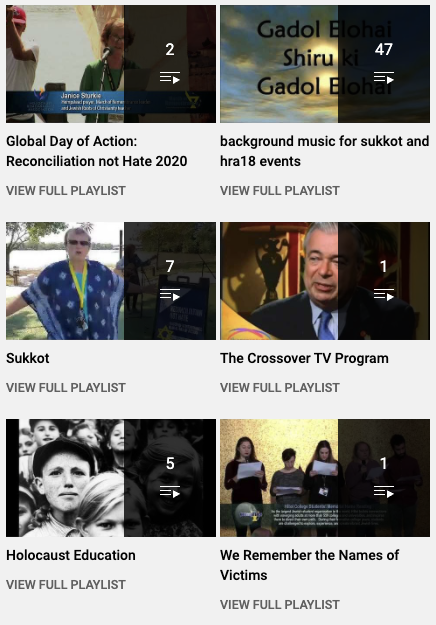Emanuel Rund, successful documentary filmmaker and producer, grew up as the son of German Jews in Israel. When he moved to Germany after completion of training, he noticed that there was in this country no remembrance for the victims of National Socialism–and grabbed the process of memory reprocessing in Germany under the arms. Johanna Strunge has spoken to us by Rund.
If Emanuel Rund talks about his idea for a German Day of Remembrance for Victims of National Socialism, he begins with his life in America. Around grows up as the son of German Jews in Israel. For his training as a documentary filmmaker, he goes to the USA. He tells of his life in New York and Hollywood and its successful start into the film business. “Suddenly, I wanted to know where I came from.” In 1984, he travels with his mother in her hometown Aurich in East Friesland. There he learns the story of his murdered by the Nazis relatives–such as his grandparents Joseph and Ida Wolffs.
About the history of his family, he opens up gradually about the history of National Socialism. “It surprised me very much that there is no remembrance for the Holocaust in Germany,” says Rund. He knows the Yom HaShoah, the Israeli Holocaust Remembrance Day, which was introduced in 1951.
Rund remains in Germany and his life builds up over the eighties here. He is rabbi and cantor of some communities and on the board of the Society for Christian-Jewish Cooperation. He is in contact with important people from politics, the church and education. These contacts he uses to express his desire for a Remembrance Day: “I have asked hundreds of these people, if they cannot help to establish a memorial in Germany.”
A new impetus given its commitment to the memorial but only by Karin: 1994 goes Rund with a group of young people to Israel. He films them as they meet survivors, talk with volunteers of the Action Reconciliation Service for Peace and Yom HaShoah commemoration participate in Israeli at Yad Vashem. “Then,” he says, ” one of the young Germans, Karin, said in the camera that she was ashamed that there was no memorial day in Germany.” He uses the opportunity, as he calls it, ” to be naughty.”
He goes back to Germany to talk to the people; among other things, he will meet with the President of the Bundestag Prof. Dr. Rita Süssmuth. Again and again he asks the people the question: “Can you do something for the young people in your country who are ashamed that there is no memorial in their country?” In 1995, he engaged in almost around the clock so.
“And then I got in early January 1996, the response from Berlin, the German President Roman Herzog have now taken over this project,” says Round, “and that he will proclaim a day of remembrance for Germany 27 January.” He laughs and cries, ” Hallelujah! ”
On 3rd of January 1996, President Roman Herzog declared the January 27th, a day of remembrance for the victims of National Socialism. The date commemorates 27 January 1945, when the Red Army liberated the Auschwitz concentration camp. It is envisaged that day express all of whom the Nazis systematically persecuted. “That was for me from the beginning of special concern,” says Rund. “I wanted to put together a day of remembrance for the Jews, homosexuals, gypsies, political and clergy resistance and all the other victims of persecution.”
President Roman Herzog and Rund are of the opinion that in fact, the commemoration of the Holocaust is of great importance for the young generation. “My goal is always the education of the younger generation and the motivation for a better future,” said Rund. Therefore all witnesses were interviewed by young people in his second German film “All Jews Out!”. He also raves about imaginative school projects in the framework of the German Remembrance Day.
Nevertheless Rund also exerts considerable criticism: “January 27, when you go to the Marienplatz in Munich or at Alexanderplatz in Berlin, you do not notice that it is a memorial day! In Israel that is quite different. There, we all know from Memorial Day and it would take place in the morning. Around 10:00 o’clock am, a two-minute siren is sounded. “In every city and even on the highway everything stops, people go out and then stand for two minutes in silence.” Rund says that this would also be a good addition to the German Day of Remembrance for Victims of National Socialism. But he doesn’t want to set it now: “I now have so many other projects. Especially I am busy for example in the process of digitizing my huge private archive so it is available to the public.
He laughs and says: “I grabbed the Memorial Day project under my arms and now I’m looking for people who grab me by the arms… ”
Whoever wants to know more about Emanuel Rund can visit his blog at http://emanuelrund.wordpress.com.
The interview was conducted by Johanna Strunge, 2009/10 ASF volunteer.
As Emanuel Rund came in 1985 to shoot his first film in Germany, one of many issues he had to “settle” with the Germans was to initiate a memorial day for the Holocaust and for all other victims of the Nazis. He did it in the early 1990’s, raising the issue with many people he met. The last phase of the campaign was in May 1994 after filming young Germans on the Jewish Memorial Day to the Holocaust, Yom-Hashoah in Yad Vashem. He campaigned for one and a half years; spoke with over 200 politicians, civil activists, teachers and the clergy.
Then on January 3rd 1996 the German President Roman Herzog chose the 27th of January as a Memorial Day. Later it was adopted by the European Union, followed by the UN as The International Remembrance Day for the whole world.
Edited by: Jewish Voice Staff
https://thejewishvoice.com/2018/01/emanuel-rund-initiator-intl-holocaust-remembrance-day/

